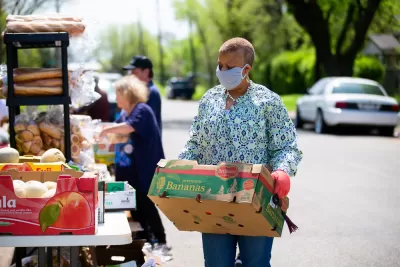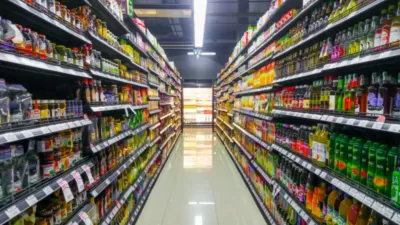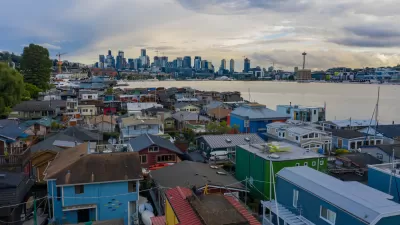A study from Des Moines found that households in historically redlined parts of town are more likely to have to seek help from food pantries.

An article by Linh Ta on Axios highlights the persistent negative impacts of redlining on American communities, citing a recent study from the Des Moines Area Religious Council that finds that households in that city’s historically redlined district are most likely to experience food insecurity.
“The redlined neighborhoods that lacked investment 90 years ago — many of which are on the city's south and east sides — are still suffering from economic instability and lower home ownership rates, according to DMARC.” Some of these areas are also at the highest risk for flooding, the report noted.
“Out of all the food pantry users in the Des Moines metro, about 43% of them live in a former C or D district, said Luke Elzinga, spokesperson for DMARC.” Homes classified as C or D properties were deemed “high risk” for lending. According to the report, “55% of multi-race Hispanic families that visited DMARC's food pantries lived in one of those districts compared to just 38% of white food pantry users.” Elzinga pointed to the need for support in multiple areas to reduce food insecurity among low-income households. “Factors like improving affordable housing options and childcare factor into economic stability.”
FULL STORY: Struggles continue in Des Moines' redlined district

Study: Maui’s Plan to Convert Vacation Rentals to Long-Term Housing Could Cause Nearly $1 Billion Economic Loss
The plan would reduce visitor accommodation by 25,% resulting in 1,900 jobs lost.

North Texas Transit Leaders Tout Benefits of TOD for Growing Region
At a summit focused on transit-oriented development, policymakers discussed how North Texas’ expanded light rail system can serve as a tool for economic growth.

Using Old Oil and Gas Wells for Green Energy Storage
Penn State researchers have found that repurposing abandoned oil and gas wells for geothermal-assisted compressed-air energy storage can boost efficiency, reduce environmental risks, and support clean energy and job transitions.

Private Donations Propel Early Restoration of Palisades Playground
Los Angeles has secured over $1.3 million in private funding to restore the Pacific Palisades playground months ahead of schedule, creating a modern, accessible space that supports community healing after recent wildfires.

From Blight to Benefit: Early Results From California’s Equitable Cleanup Program
The Equitable Community Revitalization Grant (ECRG) program is reshaping brownfield redevelopment by prioritizing projects in low-income and environmental justice communities, emphasizing equity, transparency, and community benefits.

Planting Relief: Tackling Las Vegas Heat One Tree at a Time
Nevada Plants, a Las Vegas-based nonprofit, is combating the city’s extreme urban heat by giving away trees to residents in underserved neighborhoods, promoting shade, sustainability, and community health.
Urban Design for Planners 1: Software Tools
This six-course series explores essential urban design concepts using open source software and equips planners with the tools they need to participate fully in the urban design process.
Planning for Universal Design
Learn the tools for implementing Universal Design in planning regulations.
Ascent Environmental
Borough of Carlisle
Institute for Housing and Urban Development Studies (IHS)
City of Grandview
Harvard GSD Executive Education
Toledo-Lucas County Plan Commissions
Salt Lake City
NYU Wagner Graduate School of Public Service





























